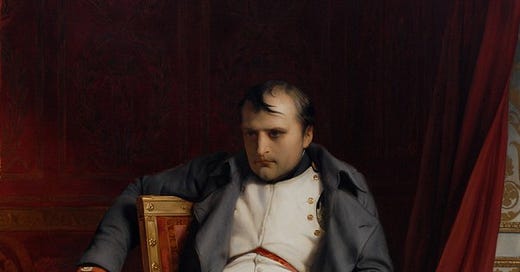
In the months preceding the start of War and Peace, First Consul Napoleon used monarchist conspiracies to justify his election as Emperor of the French. He was crowned on 2 December in Paris.
In 1805, he also became King of Italy and appointed eighteen Marshals of the Empire to lead his armies. A coalition was formed against France, consisting of Great Britain, Russia, Sweden, Austria, Naples and the Ottoman Empire.
Napoleon’s plans to invade England unravelled, and in September, he crossed the Rhine to destroy the Austrian armies before Russia could come to their aid.
BOOK ONE
bag
Chapter 14
Napoleon writes a furious letter to Murat telling him that Bagration has tricked him on the Vienna-Znaim road. He orders Murat to advance immediately.
Keep reading with a 7-day free trial
Subscribe to Footnotes and Tangents to keep reading this post and get 7 days of free access to the full post archives.




